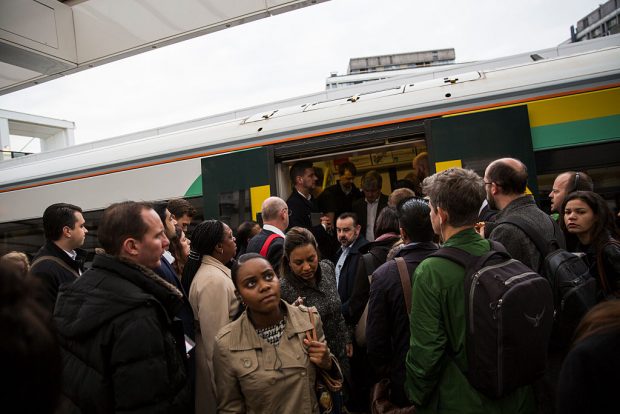Social care was notable by its absence from the Chancellor’s Autumn Statement. But the care system is now firmly back on the agenda following reports yesterday that Theresa May was set to allow councils to raise bills to plug the social care funding gap. The Daily Mail agrees that this is an issue that needs to be fixed urgently, saying that the UK is in ’severe danger of failing to meet’ the moral test of how well a society looks after the elderly. And for all the problems we’re seeing today, ‘things are about to get much worse’, the paper warns, with the introduction of the living wage, for one, likely to send care home fees soaring. So is the Government right to suggest upping council tax bills to stave off this crisis? The Mail suggests there’s a more obvious source of cash which won’t cost ’hard-pressed families up to £80 next year’. Instead, the Mail says, the solution is ‘staring the Government in the face’, with the paper suggesting it could be time to end ‘the baleful legacy’ of David Cameron and scrap the target for spending 0.7 per cent of the country’s GDP on aid. If Theresa May does this, ‘she could solve the care funding crisis at a stroke,’ the paper concludes.
Meanwhile the Sun leads on the 48-hour walkout by Southern drivers in its editorial this morning. The paper paints the strikes as a ‘grim reminder’ of how the ‘hard left’ is willing to use the public as ‘cannon fodder’. But Southern bosses don’t fare much better in the paper’s assessment of what has gone wrong. The Sun says this is, ultimately, a scrap between ‘useless bosses and pig-headed militants feigning concern for passenger safety’. And what’s more Transport Secretary Chris Grayling is also not doing enough to stick up for passengers, according to the paper. So what can be done? The Sun says it’s time to ‘pull the plug’ on the Southern Rail franchise. ‘Anyone could run it better’, the paper concludes.
The Daily Telegraph agrees with that assessment and speaks up for the thousands of commuters whose lives have been ‘blighted’ by strike action by Southern workers. But who is to blame? The Telegraph suggests that’s an easy question, with the ‘precisely 630 members of the Aslef driver’s union’ the ones to point the finger at. Their actions, the paper says, mean that a ‘handful of militants’ ‘is wreaking disproportionate havoc’ on the UK economy – something that simply ‘cannot stand’, the paper adds.
Across the pond Donald Trump has been quick to bat away talk of Russian hackers affecting the outcome of the US election. The president-elect described such talk as a ‘conspiracy theory’. Yet the Times warns that Trump shouldn’t be so quick to dismiss these reports. It says that Russian hacking ‘represents a dangerous challenge to western democracy’ and goes on to add that, if the rumours are true, it represents an ’extraordinary assault on America’. But is the CIA just making a mountain out of a molehill of evidence? Not so, says the Times, which says that ‘no responsible president should dismiss his own intelligence services so lightly’. The paper calls instead for a congressional investigation into what went on. It says that while this might damage relations with Russia, Trump should know that his ‘first responsibility…is to the democratic process in America, not to the master of the Kremlin’.
What will Brexit mean for Northern Ireland? The Financial Times discusses this ‘thorny’ topic in its editorial this morning, in which it says that while Brexit is about ‘upsetting the status quo’, it’s vital that the same logic doesn’t apply to arrangements across the Irish Sea – ‘an area where major changes are most unwelcome’. The FT says both sides in the debate must be willing to compromise to avoid a land border between Northern Ireland and Ireland. And the paper says there are other sticking points, too, including what happens to trade if Britain leaves the single market after Brexit. The FT suggests that ‘bespoke agreement covering control of the Irish border — and movement of people across it — could be negotiated as part of the wider Brexit deal’. But what’s most vital to remember, the paper concludes, is the importance of the ‘true special relationship’ between the UK and Ireland – adding that all sides must be flexible to ensure ‘as much of the current relationship as possible’ is preserved.







Comments